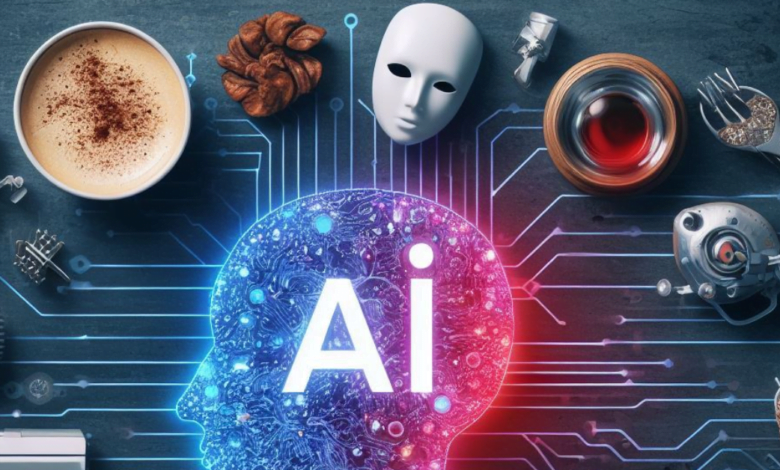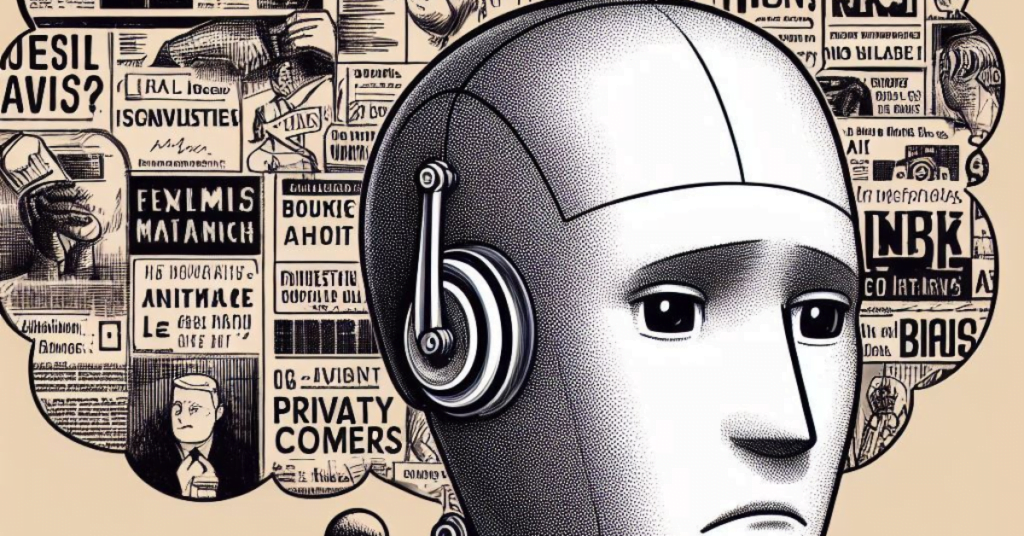
- The Advancement of Artificial Intelligence
- Disadvantages… What might go wrong?
- The Good, The Bad and the Ugly
Artificial intelligence (AI) has emerged as one of the most transformative technologies of our time. With its ability to mimic human cognition and perform tasks autonomously, AI has revolutionized various industries and sectors, ranging from healthcare and finance to transportation and entertainment. In this blog post, we will explore some key advancements in AI and their impact on society.
The Advancement of Artificial Intelligence
Natural Language Processing (NLP)
One significant development in AI is natural language processing (NLP), which enables machines to understand and interpret human speech and text. NLP has paved the way for virtual assistants, which can converse with humans fluently and provide valuable insights and assistance. This technology has transformed customer service interactions, enabling companies to offer more personalized and efficient support to their clients.
Machine Learning and Deep Learning
Machine learning and deep learning algorithms have propelled AI forward by allowing computers to learn from data without explicitly programmed rules. These techniques enable systems to identify patterns, make predictions, and improve performance over time. From content recommendation systems that suggest relevant products to online platforms that adaptively curate content, machine learning has become an integral part of modern digital experiences.
Robotics and Autonomous Systems
The integration of AI into robotics and autonomous systems has opened up new possibilities across numerous domains. Self-driving cars, drones, and robots designed for manufacturing and logistics operations demonstrate how AI can enhance efficiency, safety, and productivity. Moreover, these innovations hold immense potential in fields such as agriculture, disaster response, and space exploration.
Healthcare and Medical Diagnosis
In the realm of healthcare, AI has shown tremendous promise in improving patient outcomes and reducing costs. Advanced diagnostic tools powered by AI can analyze vast amounts of medical data to detect diseases at earlier stages and propose treatment plans tailored to individual patients. Additionally, AI-powered chatbots and virtual health coaches offer convenient and accessible avenues for managing chronic conditions and promoting healthy lifestyles.
Ethical Considerations and Governance
As AI continues to evolve, it raises important ethical considerations regarding privacy, bias, and accountability. It is crucial for policymakers and tech leaders to establish robust governance frameworks that address these concerns effectively. By prioritizing transparency, fairness, and trustworthiness, AI can truly unlock its full potential for the benefit of humanity.
The advancement of artificial intelligence represents a paradigm shift in technology, transforming the way we live, work, and interact with the world around us. As AI becomes increasingly integrated into our daily lives, it is essential to navigate the challenges and opportunities it presents responsibly. By embracing AI’s potential while addressing associated risks, we can harness its power to shape a brighter future for all.
Disadvantages… What might go wrong?
While the advancements in artificial intelligence bring exciting prospects, there are several factors that could potentially lead to unintended consequences or issues. Here are a few areas where problems might arise:

Bias and Discrimination
One major concern is the presence of inherent biases within AI systems. Algorithms trained on biased datasets can perpetuate existing societal biases, leading to discriminatory decisions and unfair outcomes. For example, facial recognition software developed using biased training data can misidentify individuals belonging to certain ethnic groups. Addressing this issue requires careful evaluation, monitoring, and regular audits of AI models to ensure fairness and eliminate discrimination.
Lack of Accountability and Transparency
Another challenge is the lack of clear responsibility and transparency surrounding AI systems. Decision-making processes involving AI often involve complex algorithms and hidden layers of computation, making it difficult to attribute specific outcomes to particular actions taken by AI. This lack of accountability can raise questions about who should be held liable if AI causes harm or produces inaccurate results. Establishing transparent standards and regulations for AI accountability is vital to build public trust and mitigate potential negative impacts.
Job Displacement
Automation driven by AI can result in job displacement, particularly for workers whose roles are deemed repetitive or routine. While automation brings increased efficiency and productivity, it also poses challenges related to workforce readjustment and economic inequality. Adequate measures must be put in place to retrain displaced workers, re-skill the workforce, and ensure a smooth transition towards a jobs-rich economy.
Security Risks
AI systems can be vulnerable to cyber attacks, either intentionally or accidentally. Malicious actors can exploit vulnerabilities in AI infrastructure to gain unauthorized access, manipulate decision-making processes, or disrupt critical services. Ensuring robust security protocols and ongoing vulnerability assessments is crucial to prevent malicious exploitation of AI systems and protect sensitive data.
Dependence on Data Quality and Availability
AI relies heavily on high-quality and diverse data sets to train and validate models. However, issues like data scarcity, quality disparities, and biased representation can hinder the effectiveness and reliability of AI systems. Developers need to invest in collecting, cleaning, and diversifying data sources to minimize these limitations and ensure fair and accurate AI outputs.
Public Perception and Acceptance
Lastly, building public acceptance and understanding of AI is essential for its widespread adoption and success. Misconceptions, fear, and mistrust surrounding AI can impede progress and limit its benefits. Educating the public about the capabilities, limitations, and ethical implications of AI through awareness campaigns and open dialogue is crucial to foster informed engagement and collaboration.
By recognizing and addressing these potential pitfalls, we can strive to maximize the benefits of AI while minimizing its drawbacks. Collaboration among stakeholders, including researchers, industry experts, policymakers, and end-users, is crucial to develop best practices, policies, and regulatory frameworks that guide the responsible deployment and use of AI technologies.
The Good, The Bad and the Ugly
Let’s categorize some of the points discussed into “The Good,” “The Bad,” and “The Ugly” aspects of AI:

The Good
- Advancements in Healthcare: AI has shown tremendous promise in improving healthcare delivery, diagnosis accuracy, personalized treatment plans, drug discovery, and reducing costs.
- Enhanced Efficiency and Productivity: AI enables automating repetitive tasks, streamlining workflows, optimizing supply chains, increasing production capacity, and reducing human error.
- Environmental Conservation: AI plays a role in analyzing environmental data, predicting climate patterns, identifying endangered species, managing resources sustainably, and mitigating natural disasters.
- Improved Transportation Safety: AI applications such as autonomous vehicles, traffic management systems, predictive maintenance, and real-time accident detection contribute to safer road travel.
The Bad
- Privacy Concerns: With the growing collection and analysis of personal data, concerns over privacy invasion, data breaches, surveillance, and targeted advertising have emerged.
- Unemployment and Economic Inequality: Automation driven by AI can lead to job displacement, exacerbating income disparity and unemployment rates.
- Ethical Issues: Questions around bias, algorithmic fairness, transparency, accountability, and potential discrimination arise due to the subjective nature of machine learning algorithms.
- Potential for Abuse: There is a risk of misusing AI technology for illicit purposes, such as deepfakes, propaganda dissemination, and weaponization.
The Ugly
- Biased Decision Making: AI systems can reproduce and amplify existing societal biases, leading to discriminatory outcomes and reinforcing inequalities.
- Black Box Algorithms: The opaque functioning of many AI systems raises concerns about their interpretability and ability to explain their reasoning.
- Technological Singularity: Speculative fears revolve around an event where AI surpasses human intelligence, leading to unpredictable consequences and loss of control.
- Resource Intensive: The development, operation, and maintenance of AI systems require significant computational power, energy consumption, and storage requirements.
